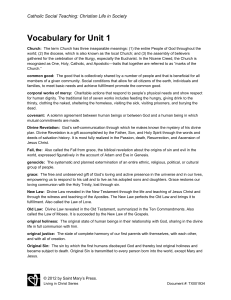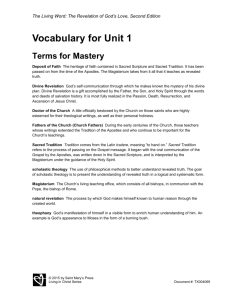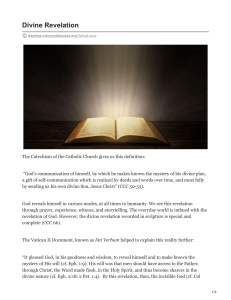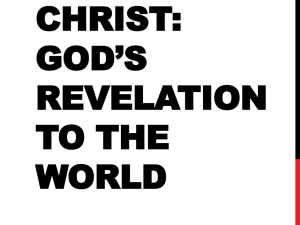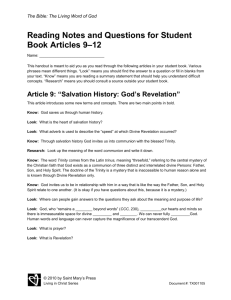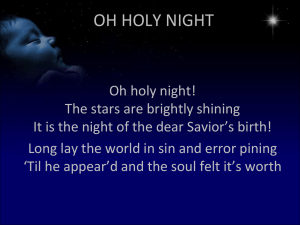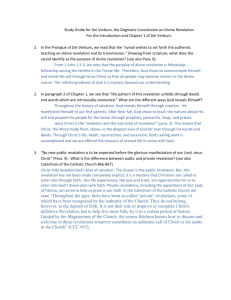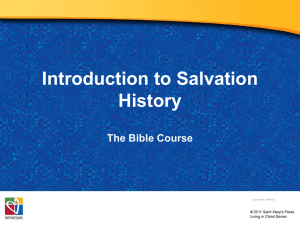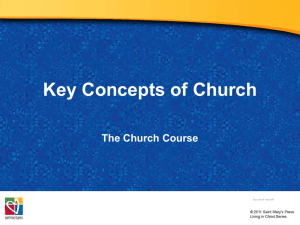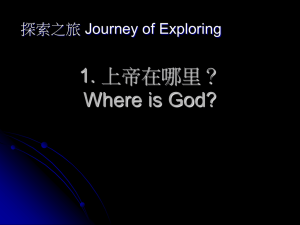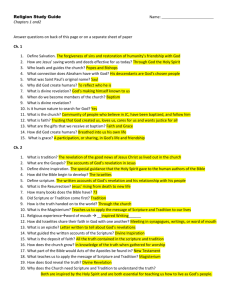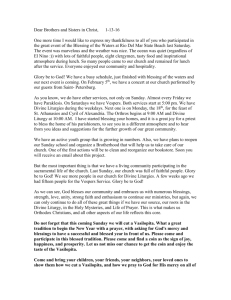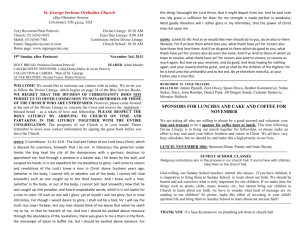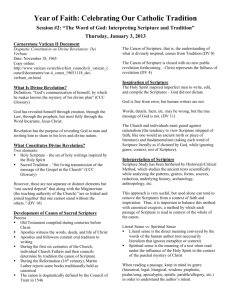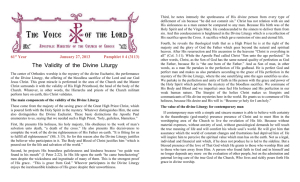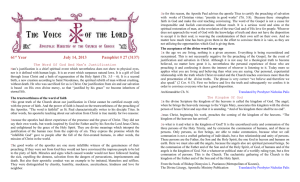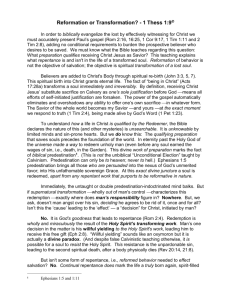Vocabulary for Unit 2
advertisement
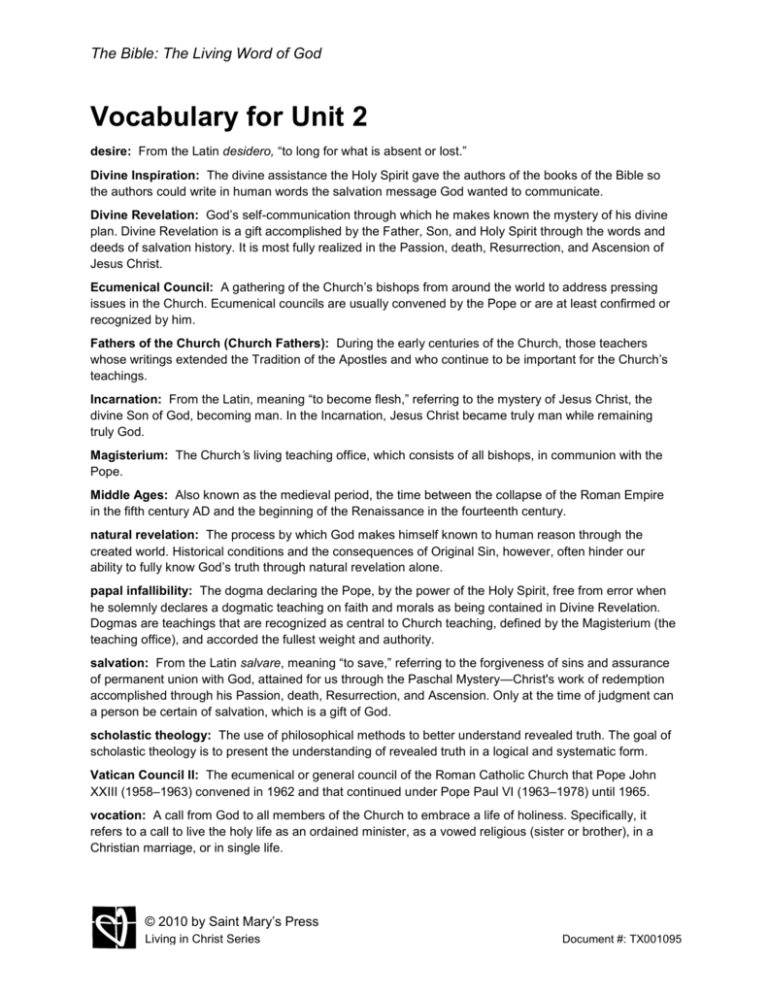
The Bible: The Living Word of God Vocabulary for Unit 2 desire: From the Latin desidero, “to long for what is absent or lost.” Divine Inspiration: The divine assistance the Holy Spirit gave the authors of the books of the Bible so the authors could write in human words the salvation message God wanted to communicate. Divine Revelation: God’s self-communication through which he makes known the mystery of his divine plan. Divine Revelation is a gift accomplished by the Father, Son, and Holy Spirit through the words and deeds of salvation history. It is most fully realized in the Passion, death, Resurrection, and Ascension of Jesus Christ. Ecumenical Council: A gathering of the Church’s bishops from around the world to address pressing issues in the Church. Ecumenical councils are usually convened by the Pope or are at least confirmed or recognized by him. Fathers of the Church (Church Fathers): During the early centuries of the Church, those teachers whose writings extended the Tradition of the Apostles and who continue to be important for the Church’s teachings. Incarnation: From the Latin, meaning “to become flesh,” referring to the mystery of Jesus Christ, the divine Son of God, becoming man. In the Incarnation, Jesus Christ became truly man while remaining truly God. Magisterium: The Church’s living teaching office, which consists of all bishops, in communion with the Pope. Middle Ages: Also known as the medieval period, the time between the collapse of the Roman Empire in the fifth century AD and the beginning of the Renaissance in the fourteenth century. natural revelation: The process by which God makes himself known to human reason through the created world. Historical conditions and the consequences of Original Sin, however, often hinder our ability to fully know God’s truth through natural revelation alone. papal infallibility: The dogma declaring the Pope, by the power of the Holy Spirit, free from error when he solemnly declares a dogmatic teaching on faith and morals as being contained in Divine Revelation. Dogmas are teachings that are recognized as central to Church teaching, defined by the Magisterium (the teaching office), and accorded the fullest weight and authority. salvation: From the Latin salvare, meaning “to save,” referring to the forgiveness of sins and assurance of permanent union with God, attained for us through the Paschal Mystery—Christ's work of redemption accomplished through his Passion, death, Resurrection, and Ascension. Only at the time of judgment can a person be certain of salvation, which is a gift of God. scholastic theology: The use of philosophical methods to better understand revealed truth. The goal of scholastic theology is to present the understanding of revealed truth in a logical and systematic form. Vatican Council II: The ecumenical or general council of the Roman Catholic Church that Pope John XXIII (1958–1963) convened in 1962 and that continued under Pope Paul VI (1963–1978) until 1965. vocation: A call from God to all members of the Church to embrace a life of holiness. Specifically, it refers to a call to live the holy life as an ordained minister, as a vowed religious (sister or brother), in a Christian marriage, or in single life. © 2010 by Saint Mary’s Press Living in Christ Series Document #: TX001095
